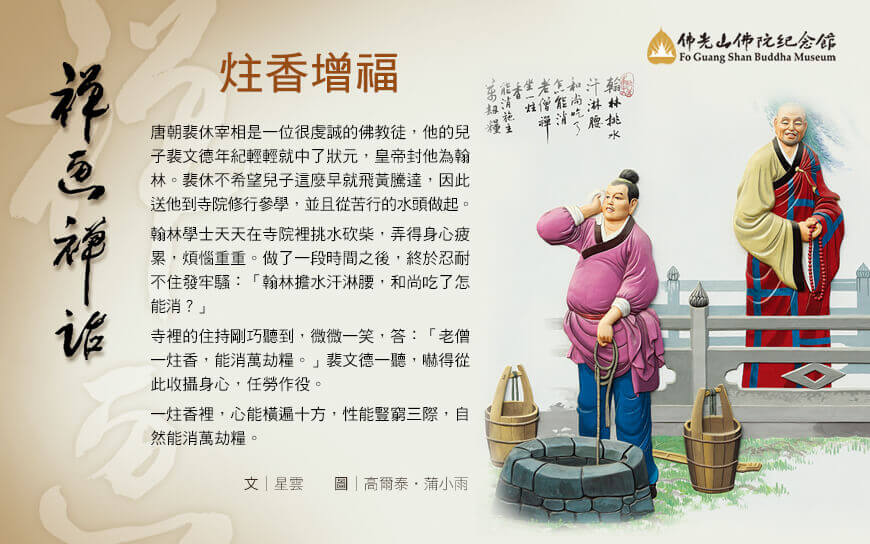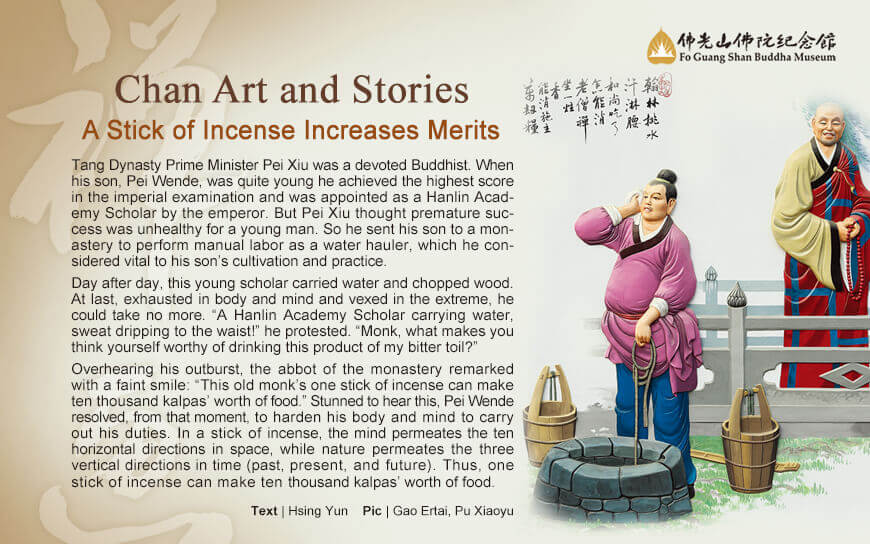語音導覽 - 禪畫禪話Audio Guide - Chan Art and Stories

唐朝裴休宰相是一位很虔誠的佛教徒,他的兒子裴文德年紀輕輕就中了狀元,皇帝封他為翰林。裴休不希望兒子這麼早就飛黃騰達,因此送他到寺院修行參學,並且從苦行的水頭做起。
翰林學士天天在寺院裡挑水砍柴,弄得身心疲累,煩惱重重。做了一段時間之後,終於忍耐不住發牢騷:「翰林擔水汗淋腰,和尚吃了怎能消?」
寺裡的住持剛巧聽到,微微一笑,答:「老僧一炷香,能消萬劫糧。」裴文德一聽,嚇得從此收攝身心,任勞作役。
一炷香裡,心能橫遍十方,性能豎窮三際,自然能消萬劫糧。

Tang Dynasty Prime Minister Pei Xiu was a devoted Buddhist. When his son, Pei Wende, was quite young he achieved the highest score in the imperial examination and was appointed as a Hanlin Academy Scholar by the emperor. But Pei Xiu thought premature success was unhealthy for a young man. So he sent his son to a monastery to perform manual labor as a water hauler, which he considered vital to his son’s cultivation and practice.
Day after day, this young scholar carried water and chopped wood. At last, exhausted in body and mind and vexed in the extreme, he could take no more. “A Hanlin Academy Scholar carrying water, sweat dripping to the waist!” he protested. “Monk, what makes you think yourself worthy of drinking this product of my bitter toil?”
Overhearing his outburst, the abbot of the monastery remarked with a faint smile: “This old monk’s one stick of incense can make ten thousand kalpas’ worth of food.” Stunned to hear this, Pei Wende resolved, from that moment, to harden his body and mind to carry out his duties. In a stick of incense, the mind permeates the ten horizontal directions in space, while nature permeates the three vertical directions in time (past, present, and future). Thus, one stick of incense can make ten thousand kalpas’ worth of food.
 上一則
上一則